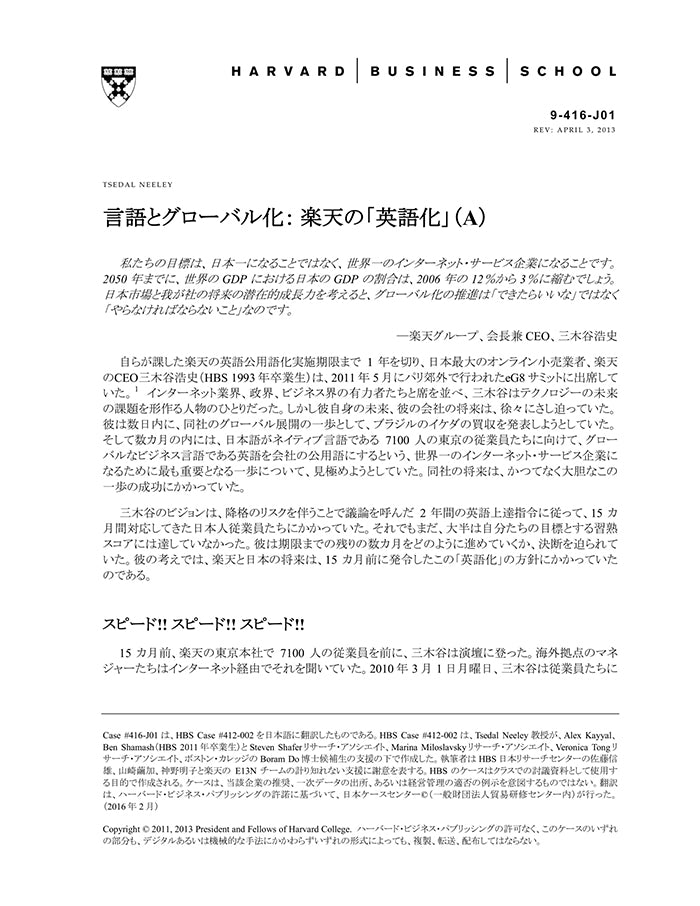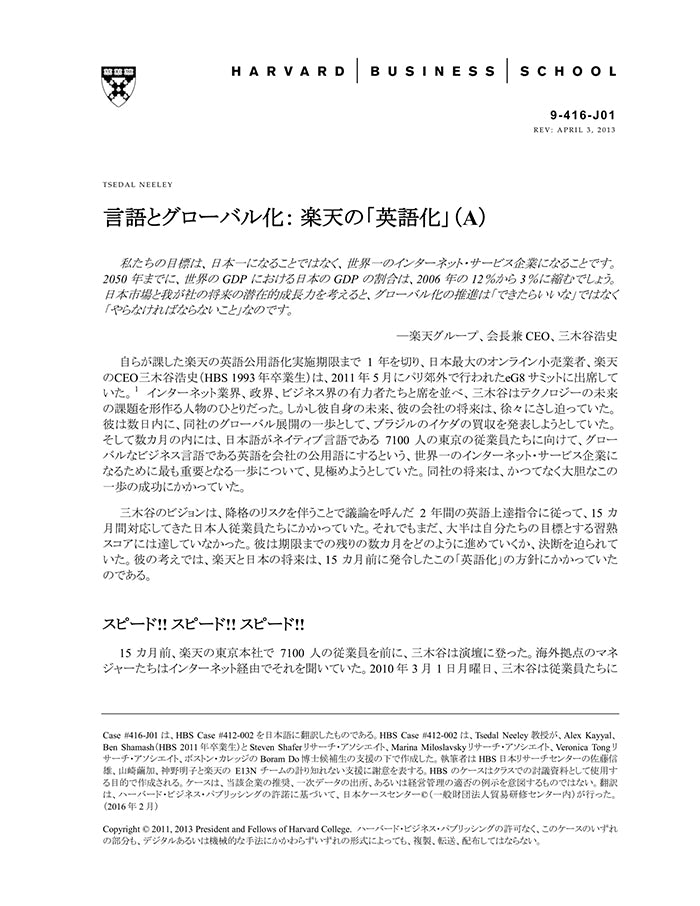言語とグローバル化: 楽天の「英語化」(A)
受取状況を読み込めませんでした
楽天(日本最大のオンライン小売業者)のCEO三木谷浩史は、グローバル市場へと急速に拡大する組織のかじ取りを行っていた。世界一のインターネット・サービス企業になるための重要な一歩として、三木谷は英語化を発表した。これは、楽天の日本人従業員7100人全てに2年間で英語上達を要求する指令で、広く報道されたものだった。三木谷の目指すところは、この組織の成功を確かなものにするだけでなく、日本社会における言語と文化の壁を打ち破ることだった。この当時、日本人スタッフのおそらく10%程度が、英語で問題なく仕事ができる程度だった。この指令の代償は大きかった。期限までに目標のスコアに達しなかった者は、降格の危機にさらされたのである。英語化が進むにつれて、生産性の低下、学習時間の不足、そして上司の異なった見解などがスタッフの成功を妨げるようになった。一部の従業員、とりわけ日本国内のみで働くスタッフは、英語化の意義さえも疑問視した。そして、この発表から15カ月経っても、大多数は目標とされる英語習熟スコアに達していなかった。期限が間近に迫る中で、この英語化の成功を確かなものにして、自分の組織のグローバル展開や日本の将来までも、どのように進めていくべきかを、三木谷は決断しなければならなかった。 Hiroshi Mikitani, the CEO of Rakuten, (Japan's largest online retailer), is at the helm of an organization that is rapidly expanding into global markets. In a critical stride toward becoming the world's No. 1 Internet services company, Mikitani announces Englishnization - a highly publicized aggressive two-year English proficiency mandate for all 7,100 of Rakuten's Japanese employees. Mikitani's goal is not only to ensure the success of the organization, but also to break down linguistic and cultural boundaries in Japanese society. At the time, only an estimated 10% of the Japanese staff could function in English. The stakes are high: those who do not reach their target score by the deadline risk being demoted. As Englishnization progresses, loss of productivity, lack of time to study, and conflicted views among managers impede staff success. Some employees even question the relevance of Englishnization, particularly for staff working exclusively in Japan. Fifteen months since the announcement, the vast majority had not yet reached their target English proficiency scores. With the deadline rapidly approaching, Mikitani must decide how to proceed to ensure the success of Englishnization, the continued global rise of his organization, and even the future of Japan.
【書誌情報】
ページ数:16ページ
サイズ:A4
商品番号:HBSP-416J01
発行日:2011/8/29
登録日:2016/4/5


